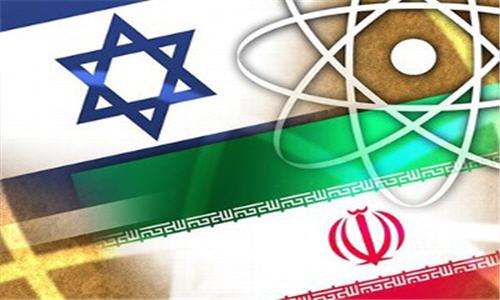 Israeli Prime Minister Benjamin Netanyahu on Thursday blamed Iran for a deadly flare-up along the Lebanese border, the deadliest escalation on the disputed frontier since the 2006 war between Hezbollah and Israel.
Israeli Prime Minister Benjamin Netanyahu on Thursday blamed Iran for a deadly flare-up along the Lebanese border, the deadliest escalation on the disputed frontier since the 2006 war between Hezbollah and Israel.
The violence erupted Wednesday when Lebanese Hezbollah militants fired a salvo of anti-tank missiles at an Israeli military convoy, killing two soldiers and wounding seven. Israel responded with shelling. A Spanish peacekeeper with the U.N. force in southern Lebanon was killed in the exchange.
The area was calm but tense on Thursday and village life appeared to return to normal. But Israeli forces were on high alert and the Lebanese National News Agency said Israeli warplanes were flying low over border villages.
“It is Iran that is responsible for yesterday’s attack against us from Lebanon,” Netanyahu said. “We will continue to defend ourselves against all threats, near and far alike.”
There was no immediate comment from Tehran.
Iran backs Hezbollah, which declared its attack an act of retaliation for an airstrike, attributed to Israel, that targeted Hezbollah fighters inside neighboring Syria earlier this month. The strike killed six Hezbollah fighters and an Iranian general. Both Iran and Hezbollah are allies of Syrian President Bashar Assad.
“This is the same Iran that is now trying to achieve an agreement, via the major powers, that would leave it with the ability to develop nuclear weapons, and we strongly oppose this agreement,” Netanyahu said, referring to the negotiations over Tehran’s disputed nuclear program.
Though the violence sparked fears of yet another crippling war between the two foes, neither Israel nor Hezbollah seemed interested in escalating the situation further.
Israel goes to the polls in March, and political analysts say Netanyahu may not want to get embroiled in another war so close to the election. Israelis are also weary after last summer’s 50-day war with Hamas in Gaza, and have been grappling with a rise in Palestinian attacks.
Shiite powerhouse Iran has been Assad’s major backer throughout the Syrian civil war, lending Damascus military support through its proxy Hezbollah. If Hezbollah were to divert its forces from Syria to a war along the border with Israel, the Lebanese Shiite group would likely find itself stretched too thin.
Israel’s Defense Minister Moshe Yaalon said earlier Thursday that the military is on alert and is “ready for any development” while at the same time warning against further attacks.
Yaalon said Israel was informed by the U.N. that Hezbollah was unlikely to escalate the violence further. “We received a message through UNIFIL,” Yaalon said, referring to the U.N. peacekeeping force in Lebanon, “that as far as they are concerned the incident is over.”
The monthlong 2006 war was sparked by a Hezbollah attack on an Israeli military vehicle along the border and the kidnapping and killing of two Israeli soldiers. The fighting killed about 1,200 Lebanese and 160 Israelis, and ravaged the Shiite-dominated region of south Lebanon as well as the country’s infrastructure.
Spain’s ambassador to the United Nations blamed Israel for the death of the Spaniard on Wednesday. The U.N. said the cause of death remains the subject of investigation.
U.N. peacekeepers were seen in southern Lebanon on Thursday, inspecting damage at the Spanish contingent’s base in Abbasiyeh village, where the soldier was killed.
A memorial service for the peacekeeper was held at Beirut International Airport on Thursday, attended by UNIFIL Force Commander Maj. Gen. Luciano Portolano, before his body was flown out.
Iran Congratulates Hezbollah
Chairman of Iranian Parliament’s National Security and Foreign Policy Committee Alaeddin Boroujerdi arrived in Lebanon on Thursday a day after Hezbollah launched an attack against an Israeli convoy in the occupied Shebaa Farms that resulted in the killing of two Israeli troops.
He congratulated Hezbollah attack which which was in retaliation to an Israeli airstrike on January 18 on Syria’s Quneitra region that left six party members and an Iranian general dead.
Boroujerdi added: “The Quneitra attack demonstrates that the Zionist entity does not have limits to its crimes.”
In a signal that was understood to mean that Iran did not want any further escalation of the flareup he said:
“Iran places great importance on the preservation of security in Lebanon”
Boroujerdi is scheduled to attend a ceremony honoring the Quneitra victims set for Friday.
Hezbollah chief Hassan Nasrallah is expected to make a televised speech on the occasion.
US News and World report/ YL

Leave a Reply
You must be logged in to post a comment.